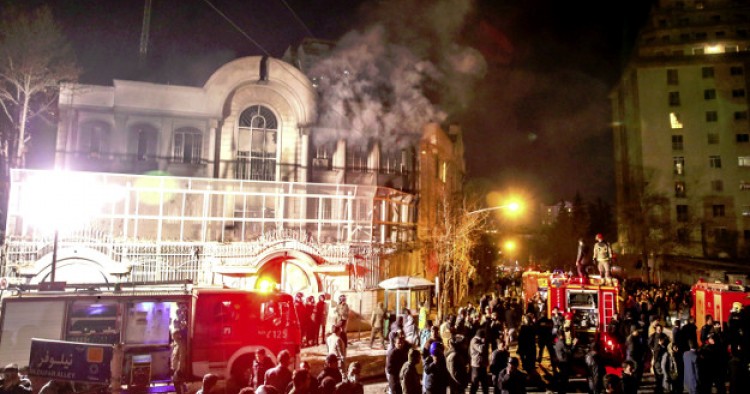The ambassador of Maldives to Saudi Arabia has said that his government refused an Iranian offer to launch a radio station in the South Asian island country. In an interview with Asharq al-Awsat in Arabic, Abdullah Hamid noted that the Maldivian government opposes the Iranian agenda in the region, especially Tehran’s involvement in the internal affairs of Syria, Iraq and Yemen. He stressed that Maldives does not want to suffer from the same danger of sectarianism that is engulfing other regional countries. “We thrive on having good relations with all countries without interfering in their affairs, which is what Iran does,” Hamid said.
The Maldivian diplomat also insisted that the Iranian government does not have any official representation in Maldives and Iranian officials do not visit the country regularly because Maldives and Iran do not have diplomatic relations with each other.
Comment: While Tehran’s financial and military support to terrorist and militant groups across the region often makes headlines, Iran’s soft power efforts that complement Iran’s political agenda and hard power strategy in the region are often neglected. Establishing or funding media organizations in foreign countries is one of Iran’s key soft power tools through which Iranian officials try to expand the regime’s ideological, cultural and political spheres of influence. Over the past decade, the Iranian government has been providing training and financial assistance to a number of media organizations from Afghanistan to Lebanon, Iraq and beyond. These Iran-supported media organizations often air Iran’s religious, cultural and political propaganda, and at times, inflame sectarian divisions in regional countries with mixed Sunni and Shiite populations.
Afghan officials, for example, claim that Iran provides funding or content to nearly a third of the country’s media outlets. In Lebanon, too, Iran-funded media outlets promote Tehran’s propaganda, and Iran’s Arabic television channel Al-Alam has more than 100 employees in its Beirut office alone.
The government of the small island nation of Maldives severed its 40-year-old diplomatic relations with Iran last May because of Iran’s interference in internal affairs of Middle Eastern states. The Maldives Foreign Ministry said at the time that stability in the Middle East was closely linked with that of the predominantly-Sunni South Asian nation, and called on Tehran to respect the sovereignty and territorial integrity of its neighbors. In the interview with Asharq al-Awsat, the country’s envoy to Riyadh also revealed that mob attacks against Saudi diplomatic missions in Iran last year also contributed to his country’s decision to cut ties with Tehran.
The Middle East Institute (MEI) is an independent, non-partisan, non-for-profit, educational organization. It does not engage in advocacy and its scholars’ opinions are their own. MEI welcomes financial donations, but retains sole editorial control over its work and its publications reflect only the authors’ views. For a listing of MEI donors, please click here.












